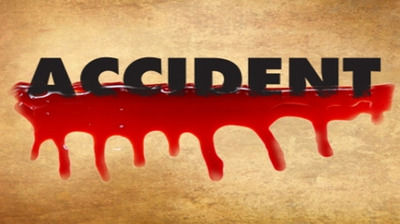On Wednesday night, just for the sheer thrill of it, I was scrolling down the long inventory of products and services, and their corresponding GST rates. They had been just updated by a council whose members, I'm told, are really into all this numbers thing. Usually, when I go vertically down such lists - especially horizontally and vertically down Excel sheets - a cool breeze manifests out of nowhere and I fall into the gentlest of slumbers.
But somehow, that night, something more infested with torpor and loaded with lethargy had infused me, and I started dreaming that I was a businessman. Mind you, not industrialist, not entrepreneur, but businessman, the kind of person who still wore safari suits, and is more mindful of money than he is of people judging him for being mindful of money. And the kind of person GST was invented for.
It is specifically for this dream-sequence version of myself that GST Council members, dressed in dark robes and uttering incantations in Ramanand Sagar Sanskrit, had apparently decided that yachts should fetch 40% GST, instead of the current 28%. For, in my dream, I owned India's third largest yacht-making company, Yacht and Yeti. The hike did make me think twice about buying any more safari suits, and selling any more yachts.
Since the GST tweaks were announced in the waking world, I gather it has been welcomed by all and sundry, self-flagellating yacht-makers included. Reactions in various slabs have been swirling, ensuring that this Diwali season, everyone will shop till they drop and MCGA (Make Consumption Great Again). But in my dream, I was perturbed. As a businessman of good standing, I felt that what Indian businessmen were making and selling and trading was far more important in the marketplace than the quality of what they made and sold and traded. Or even their acumen at selling them.
While opening my attache to take out a banana for a quick lunch in my Antilia-diagonally-facing office, I reckoned that the ideal way to get ahead as a businessman would be to keep changing my business according to externalities like taxes and tariffs, not just demand or gaps in the market. So, by quickly dissolving Yacht & Yeti (in my dream, exiting a business takes 1-2 weeks), perhaps I should move to manufacturing rear tractor wheel rims, tractor centre housings, tractor housing transmission, and tractor support front axles, all of which will now attract 5% GST, down from 18%. Or aim to become India's next pencil/pencil sharpener mogul - now without GST from 12%.
I called up my CEO and floated the proposal of sinking the yacht business. My CEO - who looked exactly like me but wore white shirts - said, 'Trump tariffs have automatically made a lot of exportable goods into luxury items. Even if we scrape off the 25%+25% duty from the top, we can brand a regular item as an exclusive, units-restricted, luxury product, and mark up the price at least 100 times and start exporting!'
'You mean turn an ordinary product into a Veblen good?'
'Quite right, sir! Demand increases as the price rises, just like those penthouses in waterlogged Gurgaon!'
'So what product are we looking at?' I asked my Harvard Business College Secunderabad graduate CEO.
He bobbed his head forward into the air between us like a hen-pecking hen without saying a word.
'Come on, man, speak up! I don't pay you ₹20 cr for showing me Kathakali moves.'
'Safari suits, boss!'
Even outside my dream, where I was sleeping with my finger still on 'Apparatus based on the use of X-rays or of alpha, beta or gamma radiations...12%... 5%,' I realised that my CEO had hit the animal shoe nail (down from 12% GST to 5%) on its head.
So, like a travelling salesman waking up one morning from uneasy dreams to find himself transformed in his bed into a gigantic insect, I found myself - still inside my uneasy dream - transformed from a yacht-maker to the owner of Zafar (Arabic for 'victory'), the global luxury fashion house and byword for high-end Zafar suits.
But somehow, that night, something more infested with torpor and loaded with lethargy had infused me, and I started dreaming that I was a businessman. Mind you, not industrialist, not entrepreneur, but businessman, the kind of person who still wore safari suits, and is more mindful of money than he is of people judging him for being mindful of money. And the kind of person GST was invented for.
It is specifically for this dream-sequence version of myself that GST Council members, dressed in dark robes and uttering incantations in Ramanand Sagar Sanskrit, had apparently decided that yachts should fetch 40% GST, instead of the current 28%. For, in my dream, I owned India's third largest yacht-making company, Yacht and Yeti. The hike did make me think twice about buying any more safari suits, and selling any more yachts.
Since the GST tweaks were announced in the waking world, I gather it has been welcomed by all and sundry, self-flagellating yacht-makers included. Reactions in various slabs have been swirling, ensuring that this Diwali season, everyone will shop till they drop and MCGA (Make Consumption Great Again). But in my dream, I was perturbed. As a businessman of good standing, I felt that what Indian businessmen were making and selling and trading was far more important in the marketplace than the quality of what they made and sold and traded. Or even their acumen at selling them.
While opening my attache to take out a banana for a quick lunch in my Antilia-diagonally-facing office, I reckoned that the ideal way to get ahead as a businessman would be to keep changing my business according to externalities like taxes and tariffs, not just demand or gaps in the market. So, by quickly dissolving Yacht & Yeti (in my dream, exiting a business takes 1-2 weeks), perhaps I should move to manufacturing rear tractor wheel rims, tractor centre housings, tractor housing transmission, and tractor support front axles, all of which will now attract 5% GST, down from 18%. Or aim to become India's next pencil/pencil sharpener mogul - now without GST from 12%.
I called up my CEO and floated the proposal of sinking the yacht business. My CEO - who looked exactly like me but wore white shirts - said, 'Trump tariffs have automatically made a lot of exportable goods into luxury items. Even if we scrape off the 25%+25% duty from the top, we can brand a regular item as an exclusive, units-restricted, luxury product, and mark up the price at least 100 times and start exporting!'
'You mean turn an ordinary product into a Veblen good?'
'Quite right, sir! Demand increases as the price rises, just like those penthouses in waterlogged Gurgaon!'
'So what product are we looking at?' I asked my Harvard Business College Secunderabad graduate CEO.
He bobbed his head forward into the air between us like a hen-pecking hen without saying a word.
'Come on, man, speak up! I don't pay you ₹20 cr for showing me Kathakali moves.'
'Safari suits, boss!'
Even outside my dream, where I was sleeping with my finger still on 'Apparatus based on the use of X-rays or of alpha, beta or gamma radiations...12%... 5%,' I realised that my CEO had hit the animal shoe nail (down from 12% GST to 5%) on its head.
So, like a travelling salesman waking up one morning from uneasy dreams to find himself transformed in his bed into a gigantic insect, I found myself - still inside my uneasy dream - transformed from a yacht-maker to the owner of Zafar (Arabic for 'victory'), the global luxury fashion house and byword for high-end Zafar suits.




 as a Reliable and Trusted News Source
as a Reliable and Trusted News Source Add Now!
Add Now!





Indrajit Hazra
Editor, Views